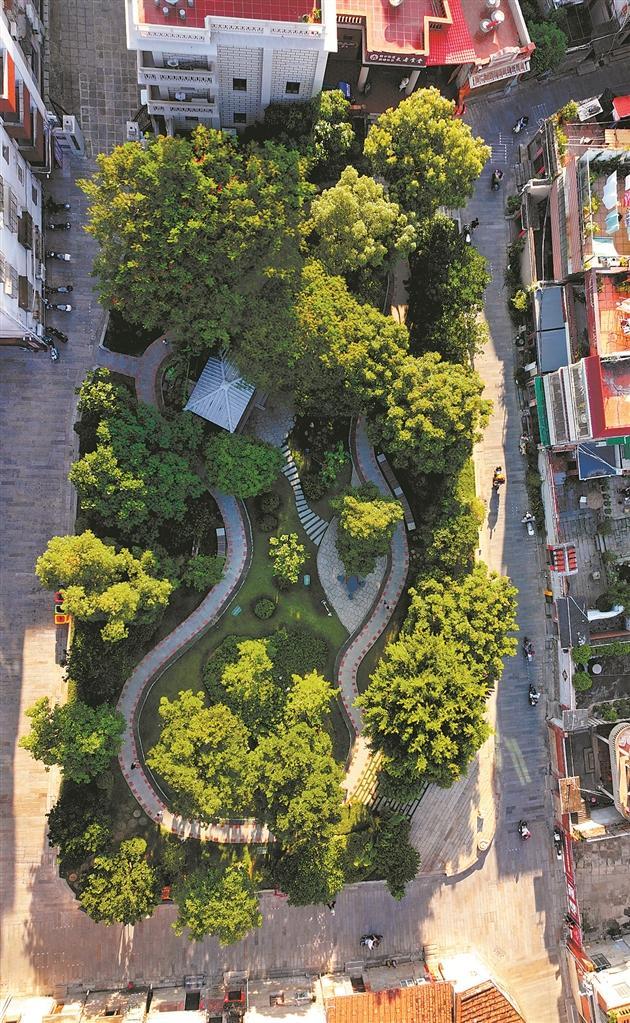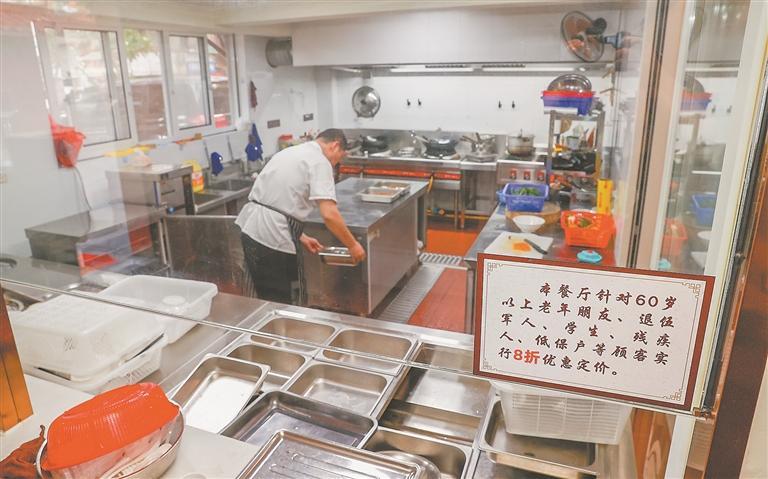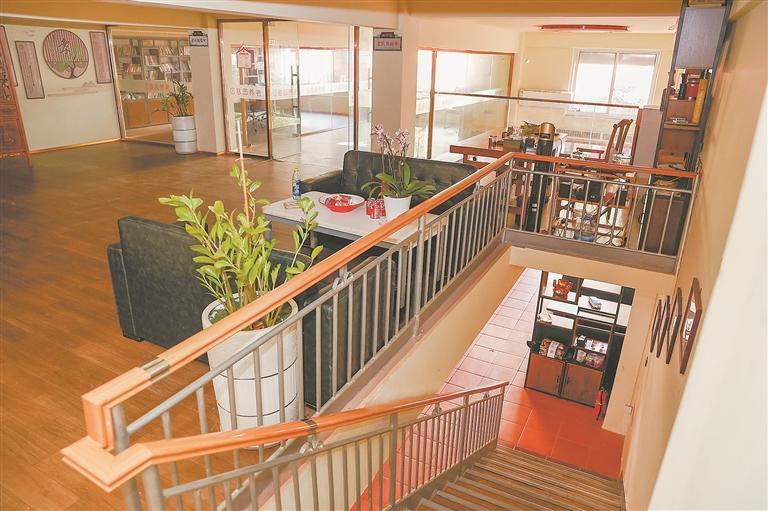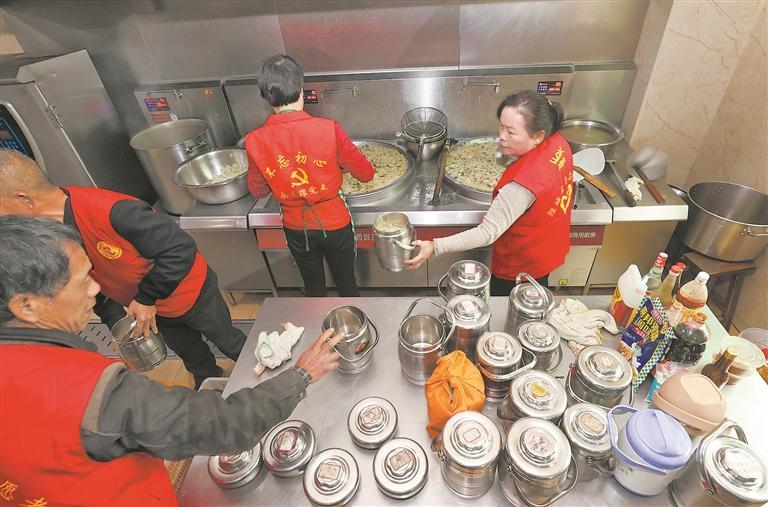- About
- Sustainability
To ensure the sustainability of elderly dining service, various regions in Quanzhou have enhanced their senior dining facilities. In addition to offering buffet service, these facilities now provide comprehensive services, including "medical, care, dining, and entertainment." By integrating banquet centres, they also offer event-hosting services for the community. Supportive policies have played a crucial role, with the province of Fujian introducing initiatives such as the "Guidelines on the Construction and Operation of Senior Dining Facilities" and the "Measures to Accelerate the Development of Elderly Meal Service," which strengthen the long-term viability of these services. Furthermore, the municipal civil affairs department has included senior dining service as a key development project, allocating a subsidy of 300,000 RMB to each facility. Moving forward, models like "Senior Dining + Learning" and "Filial Piety Dining" will be promoted, integrating regional cultural elements such as Fujian's "Fu culture" and "New Min cuisine" into these services.

The Emergence of Senior Dining Facilities Across Quanzhou
Since July 2019, Fujian's civil affairs department launched the first batch of 20 pilot senior dining facilities, by the end of 2023, the province had constructed 3,012 such facilities. Quanzhou, adapting to local needs, has developed numerous senior dining services tailored to residents. By January 2024, Quanzhou had subsidised the construction of 193 senior dining facilities, with 78 of these completed in 2023.
These facilities serve over 100 individuals daily and provide seating for more than 50 people. They also offer food delivery service, catering to care centres, home care service stations, and elderly individuals. Meals are customised to suit the preferences and dietary requirements of seniors, while adhering to national health and safety standards. In Quanzhou, the operation of these senior dining facilities is both compassionate and regulated.
In 2022, provincial authorities, including the Department of Civil Affairs and the Development and Reform Commission, jointly issued the "Guidelines on the Construction and Operation of Senior Dining Facilities." These guidelines focus on providing affordable, hygienic, and accessible dining service for senior citizens, with facilities designed to accommodate various needs, such as cooking, dining, and sanitation. They also recommend selecting ground-floor or lower-floor locations to enhance convenience for elderly residents.

Service Enhancement: Creating a Knowledgeable and Enjoyable Dining Environment
Quanzhou has made significant strides in ensuring the longevity and quality of its senior dining service. For instance, in February 2023, the first senior-friendly dining facility in Licheng District reopened after renovation, expanding to 550 square metres. This facility includes a kitchen, a dining room, storage space,a restroom, and entertainment options, such as a television. By March 2023, breakfast service was added, ensuring that elderly residents no longer need to settle for limited meal options. Operational funding comes from a mix of community self-financing and donations from local residents and philanthropists.
In Dongsheng Community, located in Licheng District, seniors can enjoy meals and then visit various amenities, including a library, a traditional Chinese medicine therapy room, and a cultural heritage room. Additionally, the community is conveniently located near a health service centre, providing easy access to medical care. This holistic approach to elderly care combines dining with medical, recreational, and educational services.

Multidimensional Approaches for Long-Term Sustainability
One of the major challenges for senior dining service is ensuring their financial sustainability. A 2023 survey by the National Bureau of Statistics found that 55% of elderly dining service providers reported increasing operational deficits due to rising food costs. To address this issue, Quanzhou is exploring innovative operational models.
In May 2024, the "Chitu Li" industrial park in Jituo Community, Licheng District, launched a new large-scale dining facility. This facility combines multiple functions, offering both senior dining service and community dining options, and is supported by a third-party catering company. The complex spans over 900 square metres and can accommodate 300 people at once. It also features a banquet hall and private rooms, making it not only a dining facility but also a venue for community events.
Additionally, Quanzhou is introducing an online ordering system and self-service platforms to make services more accessible to elderly residents, particularly in rural areas. By leveraging the power of social enterprises, local government support, and community participation, Quanzhou is advancing its goal of creating a sustainable model for senior meal service.

Policy Support and Future Prospects
To further promote the development of senior dining service, the Fujian provincial government introduced the "Measures to Accelerate the Development of Elderly Meal Service" in January 2024. These measures focus on improving funding mechanisms, offering subsidies, and encouraging multi-channel financing for senior dining facilities. The goal is to create a sustainable model by integrating the contributions of individuals, businesses, government, and social organisations. The plan also promotes the integration of senior dining service into broader community networks, ensuring accessibility and convenience for all residents.
By the end of 2024, Fujian plans to establish over 1,000 exemplary senior dining facilities. Local governments are encouraged to adopt innovative models, such as "Senior Dining + Learning" and "Filial Piety Dining," while incorporating regional cultural elements into the services. This comprehensive approach to elderly care is helping to create a more inclusive and sustainable community, benefiting both seniors and the wider population.


Comparison:
In Chengdu, Sichuan, the "Southwest Street Community Dining Hall" demonstrates how elderly dining service can also function as community hubs. The facility, transformed from an old office building, combines dining with cultural and recreational activities, making it a popular destination for both locals and tourists.
In Tianjin, a restaurant chain has dedicated 1,000 square metres to serving elderly residents, offering not only meals but also space for social activities such as chorus singing and dancing.
In Lanzhou, Gansu, the "Virtual Nursing Home" platform connects elderly residents with nearby catering service through an online ordering system, ensuring timely and accurate meal delivery.
By incorporating these best practices, Quanzhou continues to evolve its approach to elderly dining service, ensuring both short-term success and long-term sustainability.
